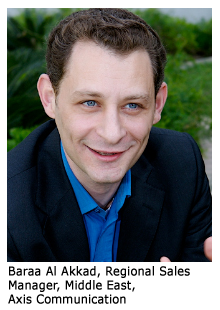The Middle East will continue to recover for the following reasons, as mentioned previously. Iran is ready to grow due to the recent easing of US sanctions. Other countries, such as Iraq and Oman, are benefiting from their oil and gas reserves. Regionally, the Middle East will remain attrative to all multinational suppliers in the coming years.
The Middle East will continue to recover for the following reasons, as mentioned previously. Iran is ready to grow due to the recent easing of US sanctions. Other countries, such as Iraq and Oman, are benefiting from their oil and gas reserves. Regionally, the Middle East will remain attrative to all multinational suppliers in the coming years.
U.A.E. REMAINS CENTER OF MIDDLE EAST
The U.A.E., especially Dubai, is still the financial center of the entire region and shall remain so in the future, due to the 2020 World Expo being hosted in Dubai. Its security industry is growing very fast in all the different verticals and the government has set up strict regulations for the industry to follow. Compared to other countries, the U.A.E. has a larger market in the commercial sector, such as hospitality, retail, education, and banks. “Government authority instructs detailed security measures in all different market sectors, including the specifications of the security equipment in specific locations, such as in Dubai, Abu Dhabi and Qatar," said Hayashi. In general, HD and megapixel has become a standard for video surveillance cameras and 180-day video storage is required for almost all the market sectors. Baraa Al Akkad, Regional Sales Manager at Middle East of Axis Communications said, “Because of the government rules, network video surveillance has a very high level of adoption here.”
"The most recent government regulation in Abu Dhabi is that all the public/private schools should be covered by megapixel surveillance cameras. This regulation is called by Abu Dhabi Education Council (ADEC). The trend is expected to filter to other areas in theU.A.E. and even Qatar. Government regulations require that the places such as sports field, corridors to classrooms, and other areas of the campus should have cameras installed. Staff offices and laboratories are recommended to install card readers for access control. Also, mobile NVR, vandal-proof cameras, and GPS tracking solutions are requested by school management to be installed on school buses," said Ali Boussi, Regional Sales Manager at BASS/Samsung Techwin. "Samsung has solutions for above requirements to comply with ADEC new regulations related to megapixel resolution, advanced WDR with 120dB/130dB, video analytics, 180-day storage on RAID6, and failover and integration with access control systems through one platform."
OMAN, BAHRAIN, IRAQ, IRAN, PAKISTAN,LEBANON, AND JORDANCompared to the U.A.E. and Saudi Arabia, countries such as Oman, Bahrain, Iraq, Pakistan, Lebanon, and Jordan are what major security suppliers in the region term as the emerging countries. The major factor is still their booming oil and gas industry. “In Oman, we have many critical infrastructure projects, such as oil and gas, airports, and other transportation projects; the government is also quite fast in making decisions. They had almost no security infrastructures in the past few years and are currently speeding up their infrastructures. Iraq has the largest oil and gas industry. We recently did one of their major refineries, using 156 thermal cameras. We are now going to a large project with a 600-kilometer oil pipeline in Iraq, too," said Gharbiah.
Some might say Iran will start to recover in 2014 or 2015 too, due to the easing of US sanctions. Hayashi said, “The US sanctions on Iran has stopped all the imports with US-related technologies and almost all the electronics devices had been affected. However, the new Iranian government brings hope to the people and to Iran. With a population of 80 to 90 million, and as one of the world's top 5 countries with huge amounts of oil and gas reserves, we are expecting optimistic future outlook for Iran.” In addition, “IP-based video surveillance has pioneered in countries, like Iran, where both the systems integrators and the end users have a better understanding toward IT and IP technologies, which in itself lay a good foundation for IP-based video surveillance market development,” continued Stefano E Cini, GM of Viseo Systems.
“VIVOTEK has a good market share in the overall Middle East market, especially in banking application in Iran. Eventhough currently our business has been affected too, I believe, with the new government and recent easing of US sanctions, Iran will start to get better this year,” also echoed Miles Chen, Department Manager of International Sales Department 1 at VIVOTEK.
.jpg)
MARKET HAS HIGH POTENTIAL
Plenty of opportunities can be found in the Middle East market. We can predict that the market will continue to grow exponentially in the following seven years, due to the region's hosting of major global sports events. However, the civil unrest in Syria and Egypt, in addition to influences from the US and Europe an economies, will continue to make this region unpredictable.
* Previously in the Middle East Shines in 2014(1):Saudi Arabia